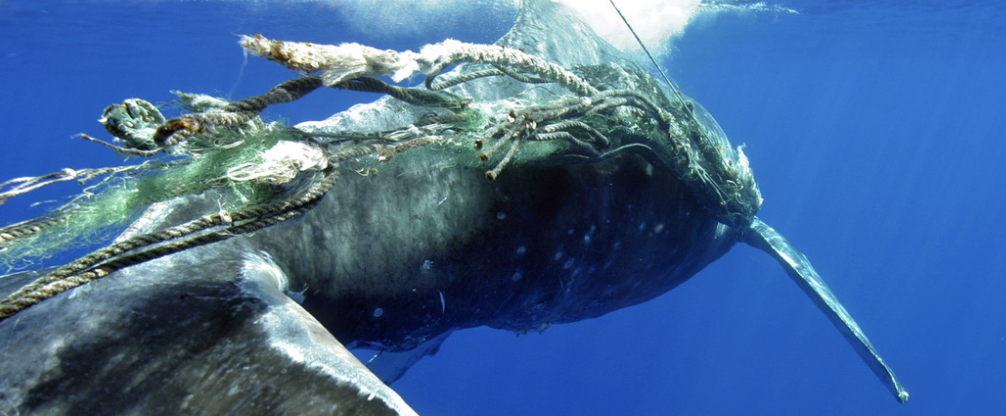Blue whales are one of the most popular species to hunt for sport and profit. They are also the most endangered species in the world, with only a few hundred left. Because of this, the hunt for blue whales is highly regulated and every effort is made to try and raise the possibility of return. However, the situation has been steadily worsening since the turn of the millennium with many other fisheries catching and killing a huge number of cetaceans on a regular basis.

Although it may seem impossible to ever find more gray whales, hippos and even dolphins, there is one kind of whale that is considerably more likely to be found alive than any other – the leatherback whale. The leatherback whale was first thought to be extinct in the late nineteen eighties but was actually sighted by divers in 2021. Since then it has been slowly increasing in numbers with an increase in population size believed to be behind the increase. At the moment, only around twenty-three pairs of leatherback whales remain in the wild, which puts them on the brink of extinction.
There are also a number of pilot whales, bottlenose dolphins and thylacids (which include the common wader dolphin and the common blue runner dolphin) which also face a grim future. All of these are threatened with extinction in the near future, which is why conserving their populations is essential. Even more concerning is the case of the pilot whale, which is thought to be the first completely Endangered whale species. This has resulted in a drastic reduction in the number of pods within the area which means that there are now only around five pilot whales left in the area.
Another unique instance of Endangered whale populations is the case of the blue whales which are the most abundant in the coastal areas of Australia. They have expanded significantly over the years and although there are some conservation programs in place, the numbers have still been too low to support their continued existence. These blue whales are extremely vulnerable to being hit by ships as they travel along the coast, especially if they are guided or harassed by other ships during the hunting season. The commercial whaling industry also contributes significantly to the decline of these whales. Every year around twenty-five to thirty blue whales are reportedly killed in Australia by commercial whalers.
One of the smallest whale species which is critically endangered is the sperm whale which is only one inch long. It is believed that this particular species is likely to become extinct soon due to being hit by a ship or being eaten by another whale. The black bear, beluga and pilot whale are also thought to be on the brink of extinction. There are very few baleen whales which are currently alive and breeding at this time.
The conservation and well-being of whales, as well as any other endangered species, has broader implications for the environment and our planet as a whole.
- Biodiversity: Whales are an integral part of marine ecosystems and contribute to biodiversity. Each species plays a unique role in maintaining the health and balance of their ecosystem. Their presence or absence can affect the populations of other species and the overall ecosystem structure.
- Ecosystem Health: Whales, particularly large baleen whales, play a critical role in the carbon cycle. They feed on krill and other small marine organisms, which helps regulate these populations. This, in turn, influences the distribution of carbon and nutrients in the ocean, which affects the health of marine habitats and their ability to capture and store carbon dioxide.
- Tourism and Economy: Whales are often a major draw for tourism in coastal regions. Whale watching has become a significant industry, generating economic benefits for local communities and promoting conservation efforts. A decline in whale populations could negatively impact tourism and the livelihoods of people dependent on it.
- Scientific Understanding: Studying whales provides insights into marine ecosystems, ocean health, and even human health. Many aspects of whale biology, behavior, and genetics have implications beyond their own species. Learning from whales can inform our understanding of marine life and broader ecological processes.
- Ethical and Moral Reasons: Many people value the intrinsic worth of all species and believe that we have a responsibility to prevent extinctions caused by human actions. Protecting whales aligns with ethical and moral principles that recognize the rights of all living beings to exist and thrive.
- Indicator of Ecosystem Health: The decline of whale populations can signal larger problems within marine ecosystems, such as pollution, overfishing, and habitat destruction. By addressing the conservation needs of whales, we can also address these underlying environmental issues.
- Interconnectedness: The health of the oceans is intricately linked to the health of the entire planet. Oceans regulate climate, provide oxygen, and support diverse ecosystems. Disruptions in marine ecosystems can have cascading effects on terrestrial systems and human well-being.
- Future Generations: By taking action to conserve whales and their habitats, we are leaving a legacy for future generations. It’s about preserving the beauty and diversity of our planet for our children and their children to enjoy and appreciate.
Ultimately, caring for endangered species like whales is a reflection of our values, our understanding of the interconnectedness of life on Earth, and our commitment to being responsible stewards of the environment. Every species has a role to play, and by protecting whales, we contribute to a healthier and more sustainable planet for all.
In order to save these rare animals, many governments are now working hard to help establish programs which focus on preserving the blue whales for future generations. There are also many organizations which aim to raise the awareness of people and provide information on the threats faced by blue whales. If you want to make sure that blue whales are not hunted and endangered, then it is important to join and support these groups and programs. You can find out what these groups are doing by visiting their websites.

